Understanding suffixes Writing Worksheets for Ages 3-8
10 filtered results
-
From - To
Explore our "Understanding Suffixes Writing Worksheets for Ages 3-8" and watch your child's writing skills blossom! Perfect for young learners, these engaging worksheets help children grasp the concept of suffixes in a fun and interactive way. Designed to boost phonics, spelling, and vocabulary, each worksheet introduces common suffixes through enjoyable activities. As kids trace, match, and write, they build a strong language foundation that’s essential for reading and writing success. Ideal for classroom use or at-home learning, our worksheets make mastering suffixes a delightful journey. Visit Kids Academy to start fostering your child’s linguistic growth today!
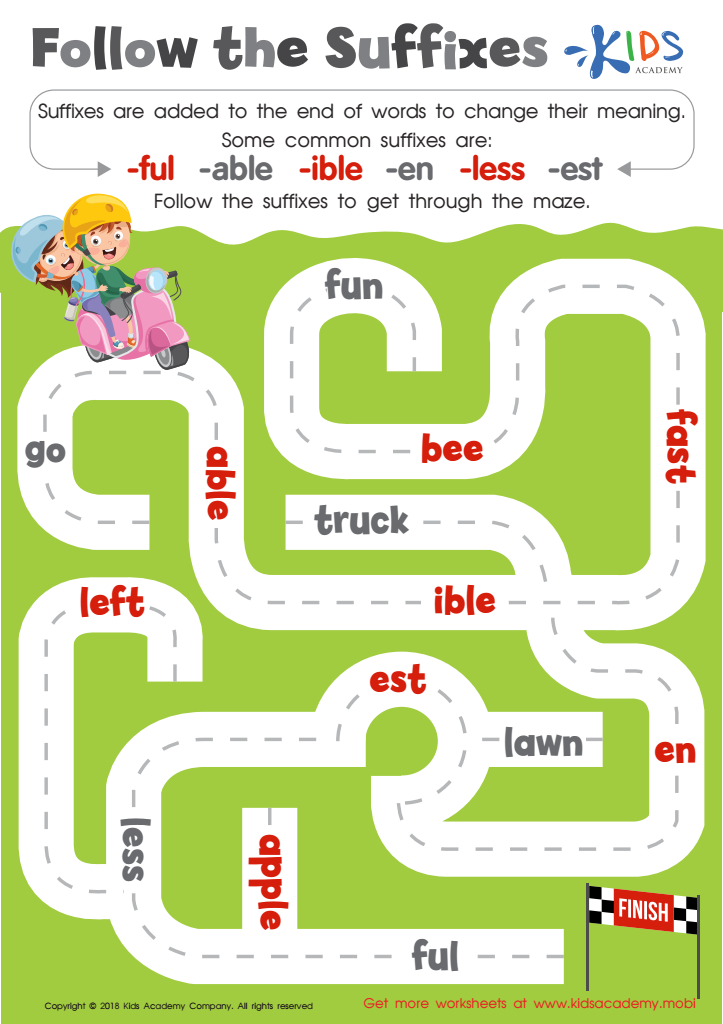

Reading: Follow the Suffixes Worksheet
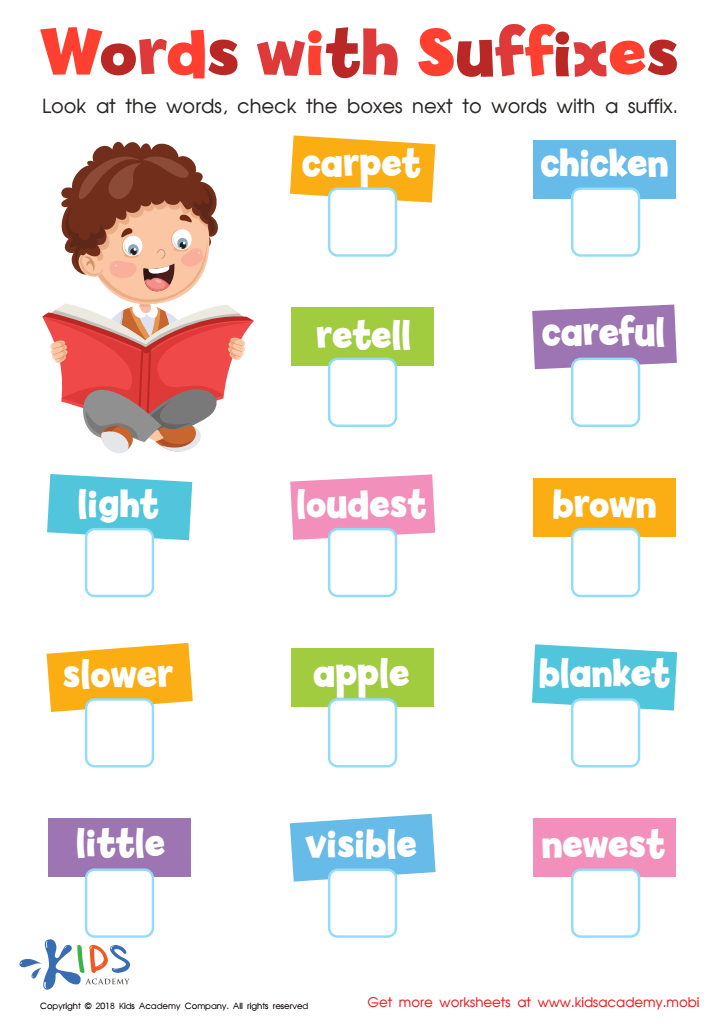

Reading: Words With Suffixes Worksheet
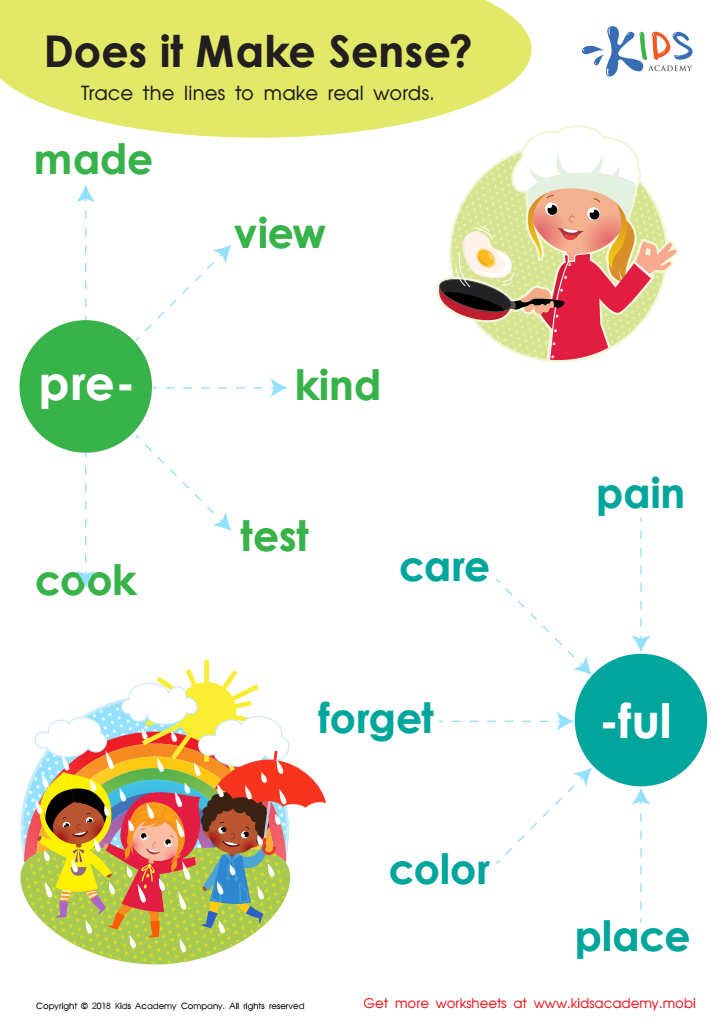

Prefix pre– and Suffix ful– Worksheet
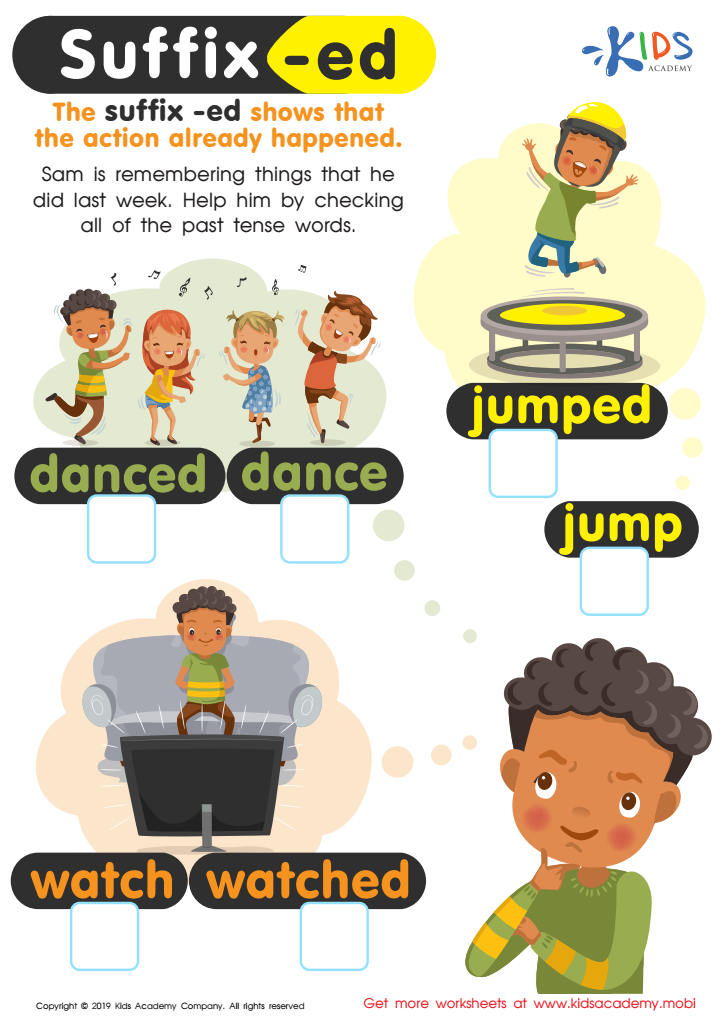

Suffix-ed Worksheet
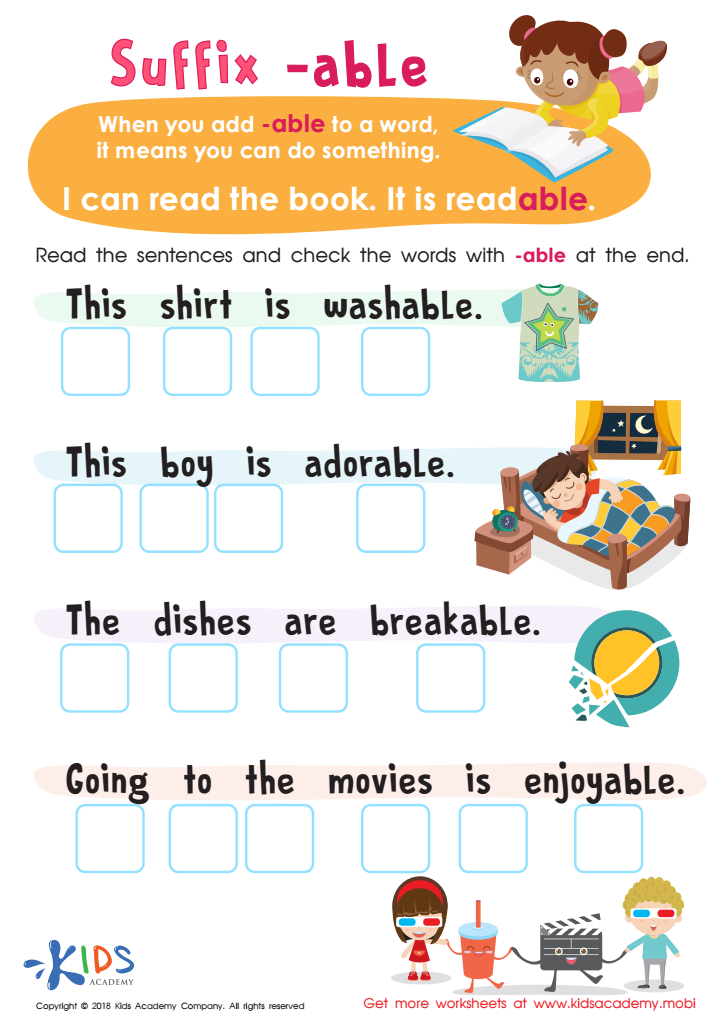

Suffix -Able Worksheet
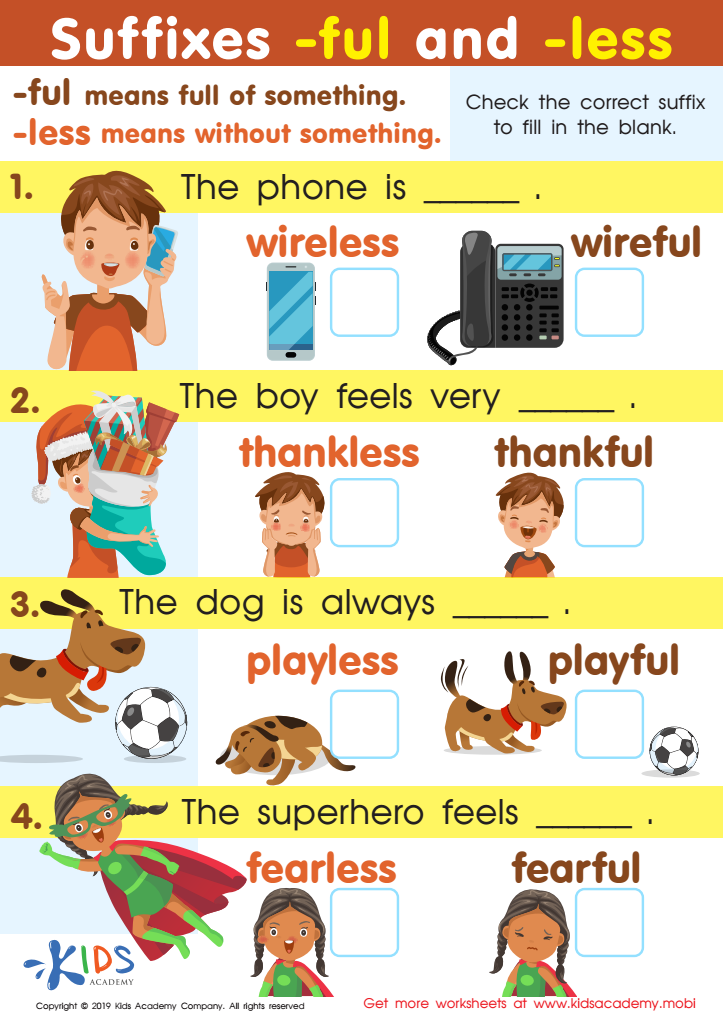

Suffixes –ful and –less Worksheet
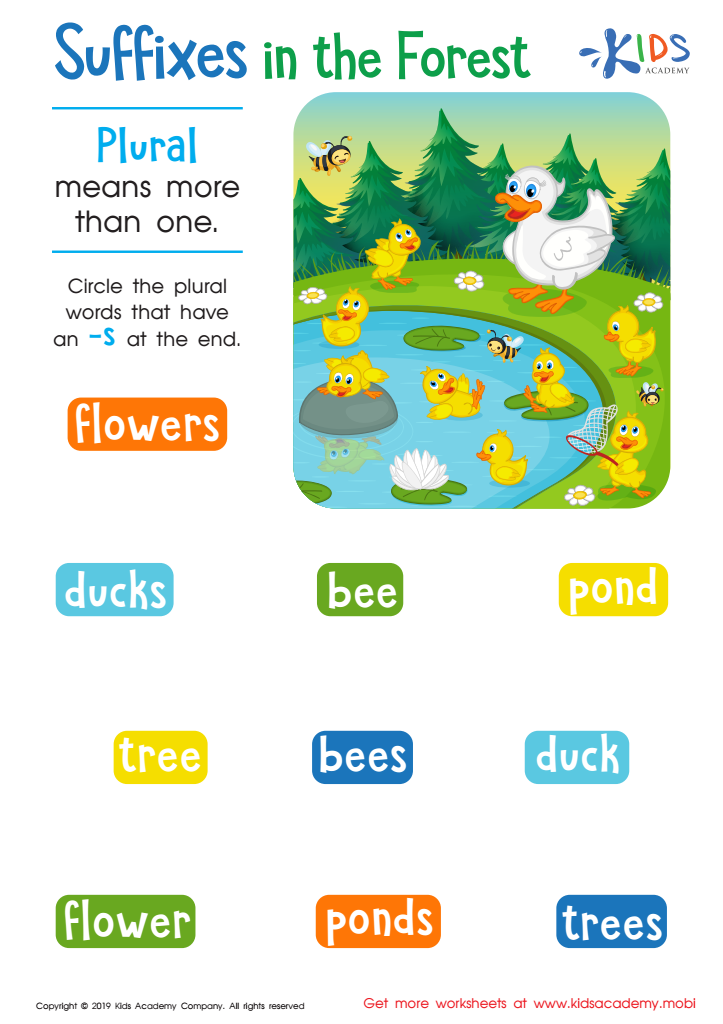

Suffixes in the Forest Worksheet
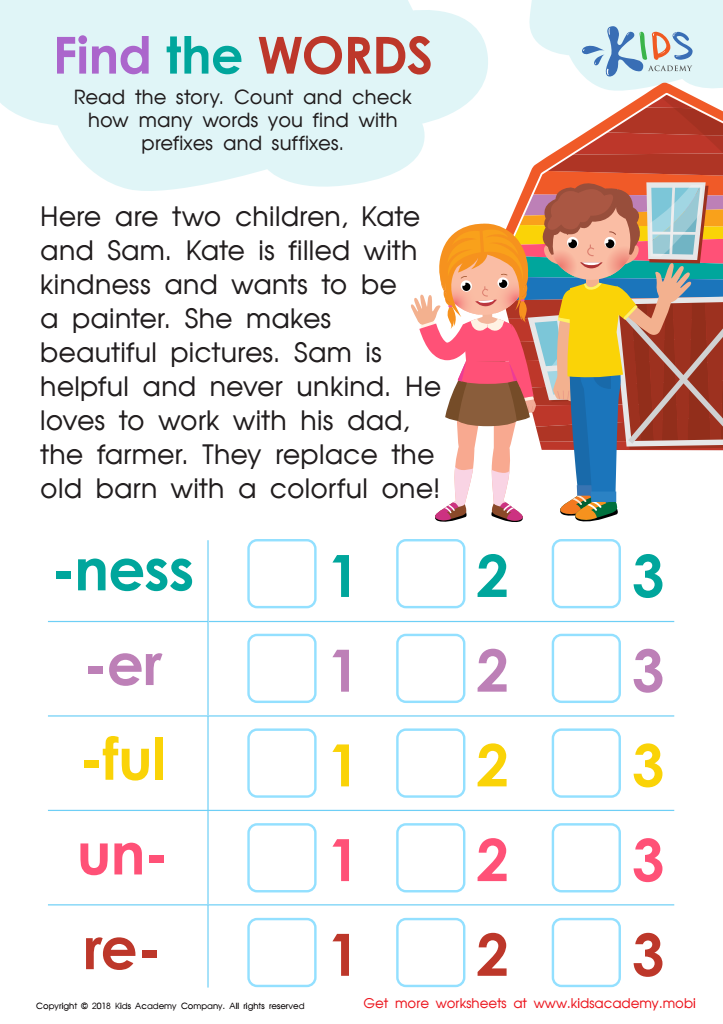

Prefix and Suffix Worksheet For Grade 3
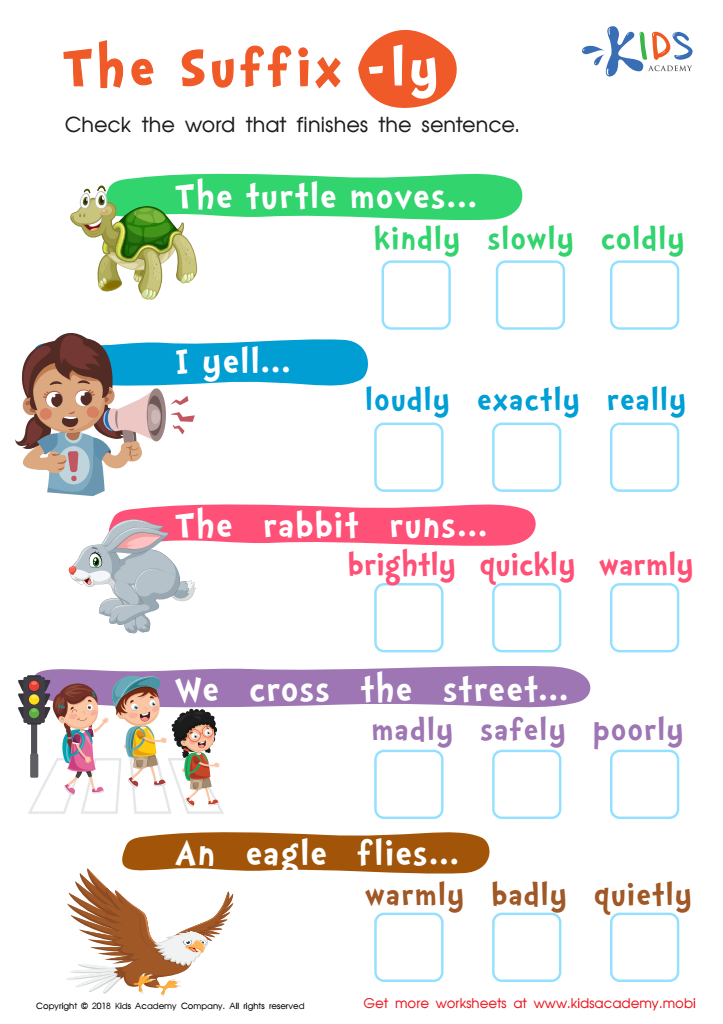

The Suffix -Ly Worksheet
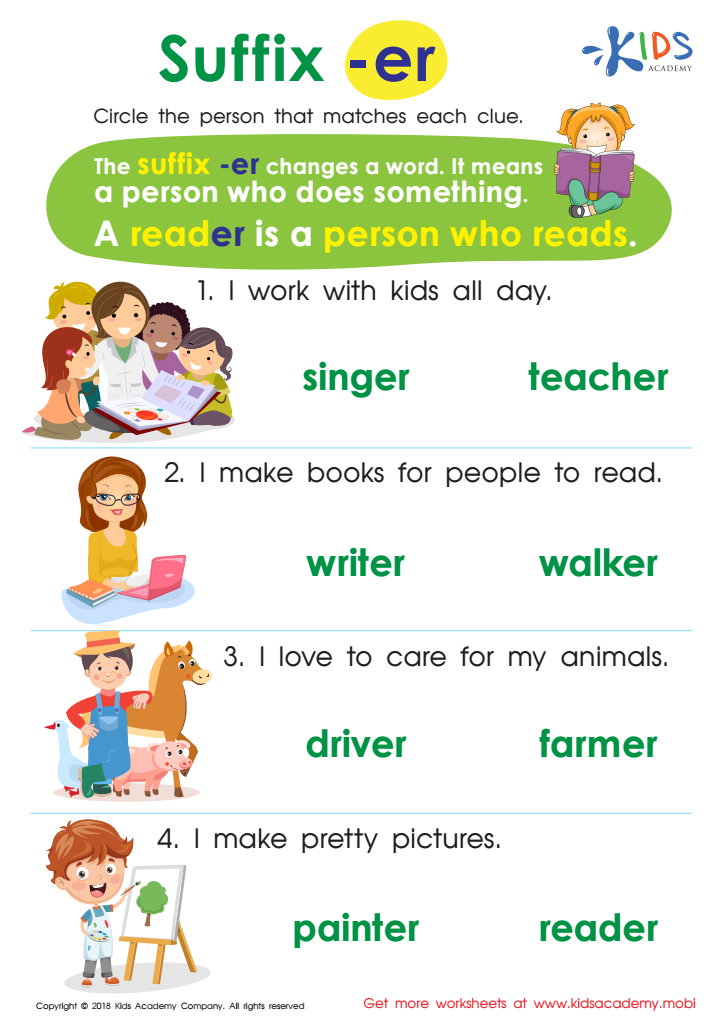

Suffix –er Printable Worksheet
Understanding suffixes is essential for young learners, and it’s crucial for parents and teachers to focus on this aspect of language development, particularly for children aged 3-8. Suffixes, the endings attached to root words (like '-ing,' '-ed,' or '-s'), play a vital role in building vocabulary and improving reading comprehension. Introducing kids to suffixes helps them understand how words change to convey different meanings, tenses, or plurality, fostering greater vocabulary. For example, knowing that adding '-ed' implies past tense or '-ing' indicates ongoing action can aid in sentence construction and comprehension.
For early readers, recognizing suffixes improves decoding skills. Encountering familiar suffixes through reading boosts confidence and fluency, making reading a more enjoyable and rewarding experience. Additionally, learning about suffixes aids in spelling by making the component parts of words recognizable and manageable.
Beyond language skills, mastering suffixes cultivates an analytical mindset, encouraging children to observe and understand patterns and relationships — foundational thinking skills. Early attention to suffixes saves difficulties later in reading, writing, and spelling.
Thus, integrating suffixes into early education is indispensable. It builds the groundwork for linguistic competency, enriches language experience, fosters analytical thinking, and boosts overall confidence in young learners. Supporting this at a young age sets students up for lifelong literacy success.
 Assign to My Students
Assign to My Students



















